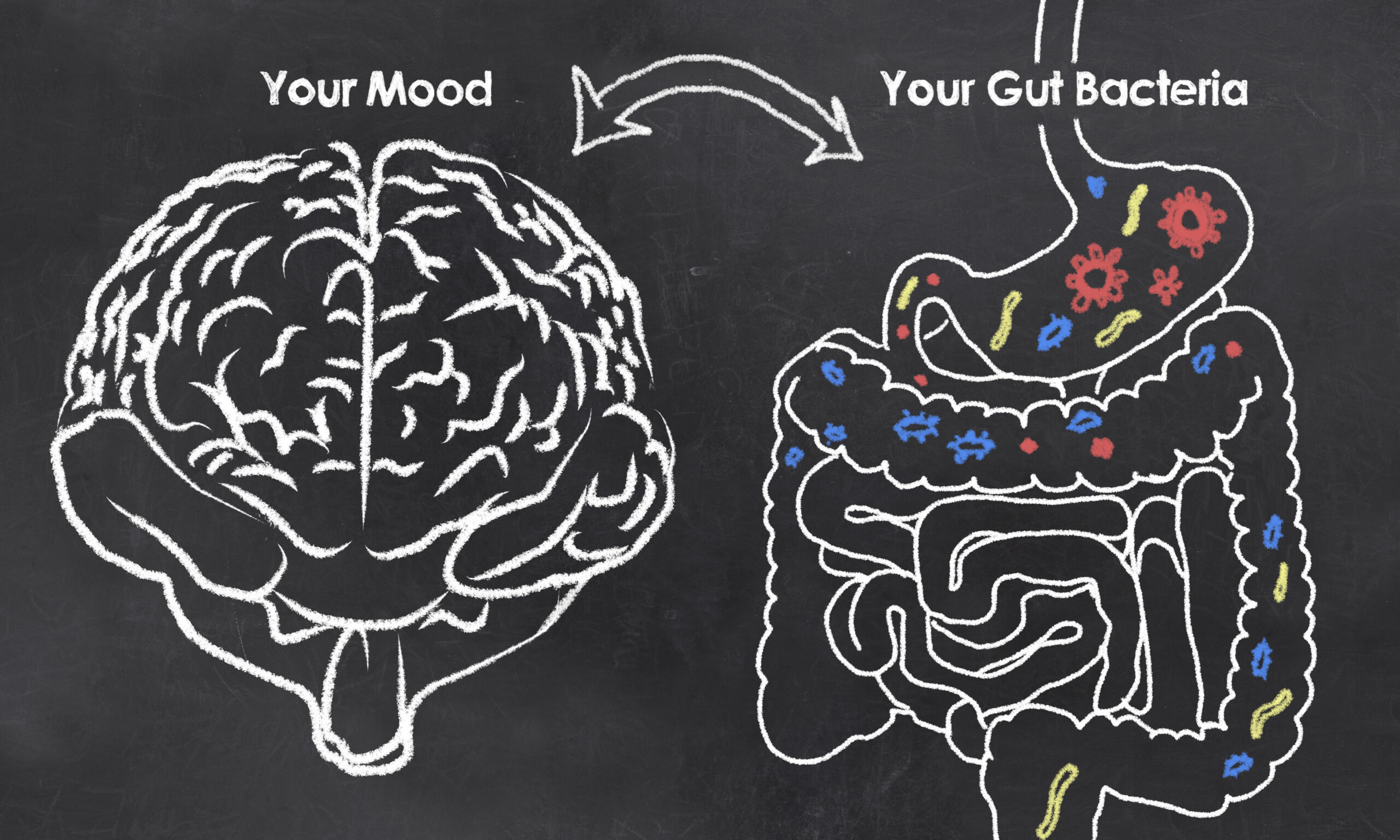In recent years, the significance of gut health is becoming more well-known. Beyond its role in digestion and nutrient absorption, mounting research suggests that the gut is pivotal in influencing mental health and overall well-being. An intricate connection between the gut and the brain sheds light on how our dietary choices can profoundly impact our mental and emotional state.
The Gut-Brain Axis:
At the heart of this connection lies the gut-brain axis, a bidirectional communication system linking the gastrointestinal tract with the central nervous system. This intricate network involves a complex interplay of biochemical signals, neural pathways, and microbial activity. Within the gut, trillions of microorganisms, collectively known as the gut microbiota and microbiome, thrive and profoundly influence various aspects of health, including immune function, metabolism, and mood regulation.
Science is increasingly discovering the importance of gut bacteria in the communication between the brain and the gut. The vagus nerve, which runs from the base of the brain to the digestive system, is modulated by this bacteria. The vagus nerve is part of the parasympathetic nervous system, which controls crucial functions such as the immune system’s response, digestion, heart rate, and mood.
Gut bacteria also produce serotonin and dopamine, which are critical to mental health. It is estimated that more than 90% of serotonin is in the gut, which controls mood.
Along with serotonin creation, the microbiome helps decrease inflammation, impacting mental health. Two types of inflammation occur within the body. The first is acute inflammation, the body’s natural response to illness or injury. It helps remove harmful toxins from the body and typically lasts less than two weeks. The issue arises when your body is dealing with chronic inflammation. Chronic inflammation can damage healthy cells, tissues, and organs and may cause internal scarring, tissue death, and damage to the DNA in previously healthy cells.
The Role of Gut Microbiota in Mental Health
Research has shown that alterations in the composition and diversity of the gut microbiota can influence brain function and behavior. Imbalances in gut bacteria, often referred to as dysbiosis, have been linked to an array of mental health disorders, including depression, anxiety, and even neurodegenerative diseases such as Alzheimer’s and Parkinson’s. Conversely, maintaining a diverse and balanced gut microbiome through dietary interventions, probiotics, and prebiotics may significantly benefit mental well-being.
The Impact of Diet on Gut Health and Mental Well-being
Dietary factors play a crucial role in shaping the gut microbiota and, by extension, influencing mental health outcomes. A diet rich in whole and fermented foods can promote microbial diversity and enhance gut barrier function, reducing inflammation and mitigating the risk of mood disorders. Conversely, diets high in processed foods, sugar, and artificial additives have been associated with dysbiosis and an increased susceptibility to mental health issues.
Practical Strategies for Supporting Gut Health and Mental Well-being
Fortunately, there are actionable steps individuals can take to nurture their gut health and support mental well-being:
- Prioritize a diverse and balanced diet rich in grass-fed and grass-finished beef, pasture-raised pork and chicken, organic fruits and vegetables, and healthy fats. Limiting grains has also been shown to improve the microbiome. When you do eat grains, ensure they are organic to remove the possibility of harmful chemicals and pesticides. To see how diet significantly impacts mental health, click here
- Incorporate fermented foods such as yogurt, kefir, sauerkraut, and kimchi into your diet to promote beneficial gut bacteria.
- Consider taking probiotic supplements to bolster microbial diversity, particularly after antibiotic use or during stress. They are not a sponsor of JEM, but I take Seed. It is a pro and prebiotic and has helped my gut. You can visit them at https://seed.com/.
- Minimize the consumption of processed foods, refined sugars, and artificial additives, which can disrupt gut microbiota and trigger inflammation.
- Manage stress through mindfulness practices, regular exercise, adequate sleep, and other stress-reduction techniques, as stress can adversely affect gut health and mental well-being.
In conclusion, gut-brain axis research underscores gut health’s profound impact on mental well-being. By nourishing our gut with wholesome foods, fostering a diverse microbiome, and prioritizing stress management, we can cultivate a thriving ecosystem within our bodies that supports digestive health and promotes mental clarity, emotional resilience, and overall vitality. As we unravel the complexities of this fascinating connection, embracing a holistic approach to health that encompasses both the gut and the mind will be critical to unlocking our full potential for well-being.
To learn more:
https://www.thorne.com/take-5-daily/article/how-the-bacteria-in-your-gut-might-affect-anxiety-and-depression?gad_source=1&gclid=Cj0KCQjwwYSwBhDcARIsAOyL0fgv0Ri6Oj5Q1uKNkfiufT25NrDcC-W93v2aCsd77KG_wUmE3q3qCO4aAswuEALw_wcB
https://www.novanthealth.org/healthy-headlines/chronic-inflammation-why-its-harmful-and-how-to-prevent-it







Leave A Comment